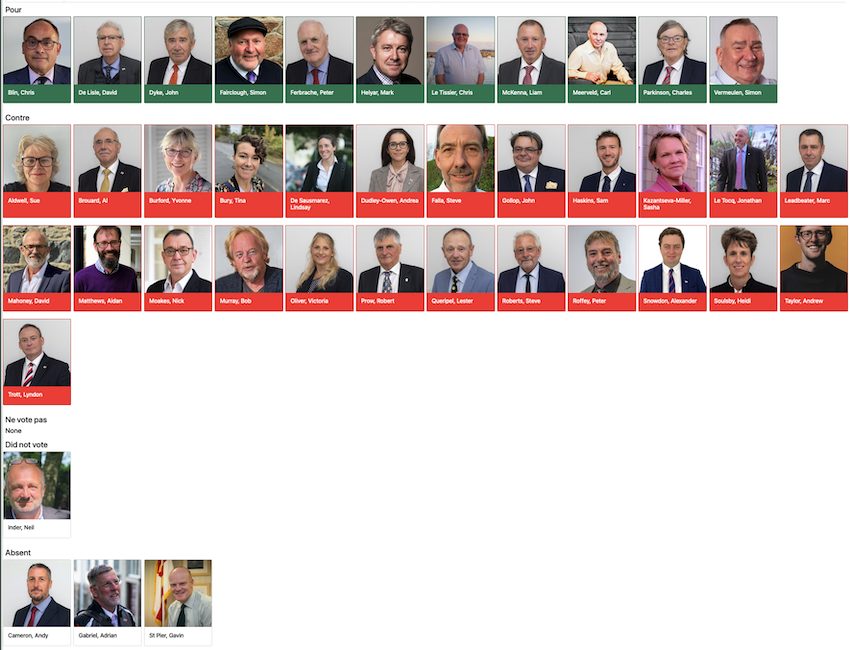


The States is in line for £650m. of revenue spending next year after the final attempt to cut that bill failed.
Deputy John Dyke led an amendment to take £27.8m. off that, or 4.27%, but ultimately only managed to muster 11 votes.
That was, however, five more than fell behind a move the day before to freeze spending at 2024 levels.
Debate swirled around familiar talking points, like spending on consultants, headcount control and using AI to drive efficiency, taking up the whole of the Wednesday morning session.
In the end, arguments around the indiscriminate nature of the cuts and the damage to services won out.
Deputy Dyke characterised his amendment as the last chance to talk about spending control before they got on to tax rises.
"We must, as any jurisdiction has to do, focus on our costs first," he said.
He listed ways he saw to make savings, from headcount control, through the renegotiating the Agilisys IT contract, to merging the two fire fighting services and other budgeted spending he does not think will happen like double handling of inert waste.
Deputy Dyke also addressed capital spending, arguing that until nurses accommodation was sorted they should not press ahead with the next phase of the hospital extension.
"I think my point in going through this is, if you go through it all in a granular way, look at what we can do over a reasonably short period, the £27.8m. that I propose we save is doable."
Pictured: Deputy Simon Vermeulen.
The amendment was seconded by Deputy Simon Vermeulen.
"You've got to be looking at making savings and efficiencies wherever you can. And I think there needs to be a higher impetus on that, and this would help P&R achieve that," said Deputy Vermeulen.
"Because instead of P&R actually asking, 'do you think you would like to make savings?' This would be our Assembly agreeing that, 'yes, we think that is doable'."
Deputy Yvonne Burford agreed with the sentiment of the amendment but said the problem was the approach.
P&R had already set out how the committees' budgets would be hit.
"The reductions in this are actually indiscriminate," she said.
Policy & Resources President Lyndon Trott said that the effect of the amendment was to give his committee carte blanche to decide what to do with committee budgets, saying it was "executive government by the back door".
The amendment was "extraordinarily foolish".
"Public sector employment is circa around 5,000 full time equivalents," he said.
"That is a fact, and much smaller than our major economic sector in financial services... our public sector is the smallest relative to our economically active workforce of all of the three CDs, evidenced by the fact that we spend significantly less on public services per capita than those other jurisdictions. These are facts, not myths."
He argued that the real terms increase in the Budget was £5m., almost all of it in health services as a result of an aging demographic.
People deserved care in their twilight years, he said.
"Without appropriate levels of public investment, we can and are driving ourselves towards economic stagnation and the comparison with Jersey is a particularly valid one, our levels of growth over the last few years have been modest."
P&R was seeking to ensure "that not only public services are maintained at the level they are at at the moment, but that we can maintain the investment into infrastructure that this Assembly has already agreed."

Pictured: How they voted on Deputy Dyke's amendment to reduce the revenue budget by £27.8m.
Pictured top: Deputies Lyndon Trott and John Dyke.
Follow the full Budget debate live each day on our blog.
Comments
Comments on this story express the views of the commentator only, not Bailiwick Publishing. We are unable to guarantee the accuracy of any of those comments.